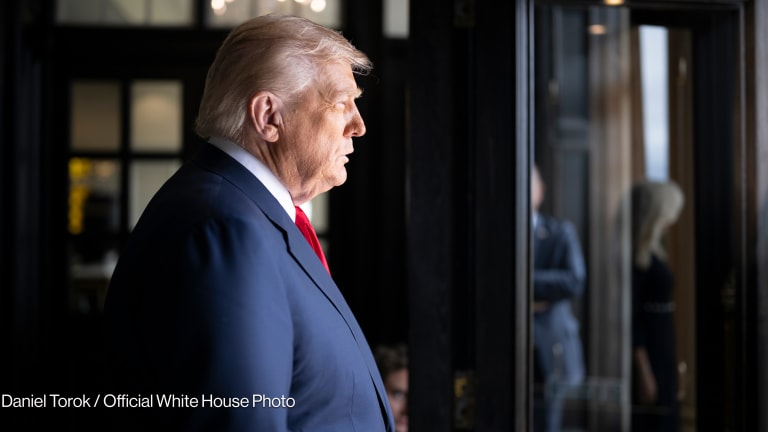
The top U.S. aid official attempts to boost support for a robust U.S. foreign aid budget in a letter to the American public as congressional budget deliberations heat up and his agency is the target of massive cuts.
U.S. lawmakers only have until April 8 to pass either a full fiscal 2011 budget or another short-term spending bill to avert a possible shutdown of the federal government. They are also set to begin deliberations for the fiscal 2012 budget. A number of congressmen, including the key appropriator for foreign and state operations, are keen to reduce funding for the U.S. Agency for International Development.
>> Aid Community Grapples with US Budget Uncertainties
>> Ros-Lehtinen Outlines Aid Cuts to Obama’s 2012 Budget Request
Foreign aid is a “smart investment” that shows the U.S. public’s generosity while supporting U.S. economic growth and national security, USAID Administrator Rajiv Shah says in his annual letter released Thursday (March 31).
“Our assistance depends on generosity from the American people. But it also derives benefits for the American people: it keeps our country safe and strengthens our economy,” Shah writes.
Shah highlights how USAID is helping improve food security in the developing world through the Feed the Future program and contributing to international efforts to strengthen national health systems via the Global Health Initiative. He also outlines the agency’s contributions to relief and reconstruction efforts in Haiti, as well the development of Sudan, Afghanistan, Pakistan and South Korea.
South Korea, he says, is a good example of how U.S. foreign aid helped transform an impoverished country into a key trading partner.
“Today, USAID no longer provides assistance to South Korea; instead, the country is a net donor of foreign assistance. And South Korea has now become a vibrant source of trade for America,” Shah says.
Shah goes on to discuss how USAID is changing the way it does development, by adopting an approach that leverages the agency’s investments, focuses on local capacity building and capitalizes on science, technology and innovation.
>> Rajiv Shah Unveils New USAID Evaluation Policy, Previews Other Contracting Reforms
“Rather than achieve incremental gains by following status-quo approaches, we must bend the curve of progress, devising new ways to deliver better results more quickly and more cheaply,” the administrator says.
Relief efforts in Haiti, for instance, have shown the importance of reducing red tape and bureaucratic hurdles to quickly and flexibly deliver assistance to countries in need, Shah says. USAID is seeking to address these bottlenecks through initiatives such as a series of new funding mechanisms aimed at boosting innovative solutions to global challenges. The first of these mechanisms, which focuses on maternal and child health, was launched in March.
>> USAID and Partners Launch New Funding Mechanism for Global Development Innovators
He admits that USAID’s new approach involved “difficult tradeoffs” such as ending U.S. bilateral assistance to 11 countries. Shah also mentioned the elimination of aid to 11 countries in a recent testimony before a U.S. House appropriations subcommittee on foreign and state operations, where he said U.S. President Barack Obama’s budget request reflects a reduction of bilateral aid to 20 countries.
>> Rajiv Shah: In Fiscal 2012, US to Halve Aid in 20 Countries
In his letter, Shah also attempts to clarify what many groups have identified as a common misconception among the U.S. public: that the foreign aid budget accounts for 25 percent of the U.S. federal budget. In reality, it is only less than 1 percent, he says.
>> MFAN: Americans Need ‘Honest Facts’ on US Foreign Aid
Shah invites the American public to regularly interact with him through his Twitter account to learn how U.S. taxpayers’ investments, through USAID, are helping solve some the world’s biggest development challenges.
The release of Shah’s letter is part of USAID’s commemmoration of its 50th anniversary and comes as some non-governmental organizations and advocacy groups prepare to launch their own pro-USAID budget campaigns.
On April 1, Oxfam America will start an advertising campaign against the “dangerous misconceptions permeating Washington about global poverty-fighting assistance.” Oxfam says its ads target the notion that slashing U.S. foreign assistance will plug the federal budget gap.
The Modernizing Foreign Assistance Network, U.S. Global Leadership Coalition and others are also actively engaged in efforts to ensure a robust U.S. foreign affairs budget.
A copy of Shah’s annual letter is available in full below.
Read more about U.S. foreign aid reform.








